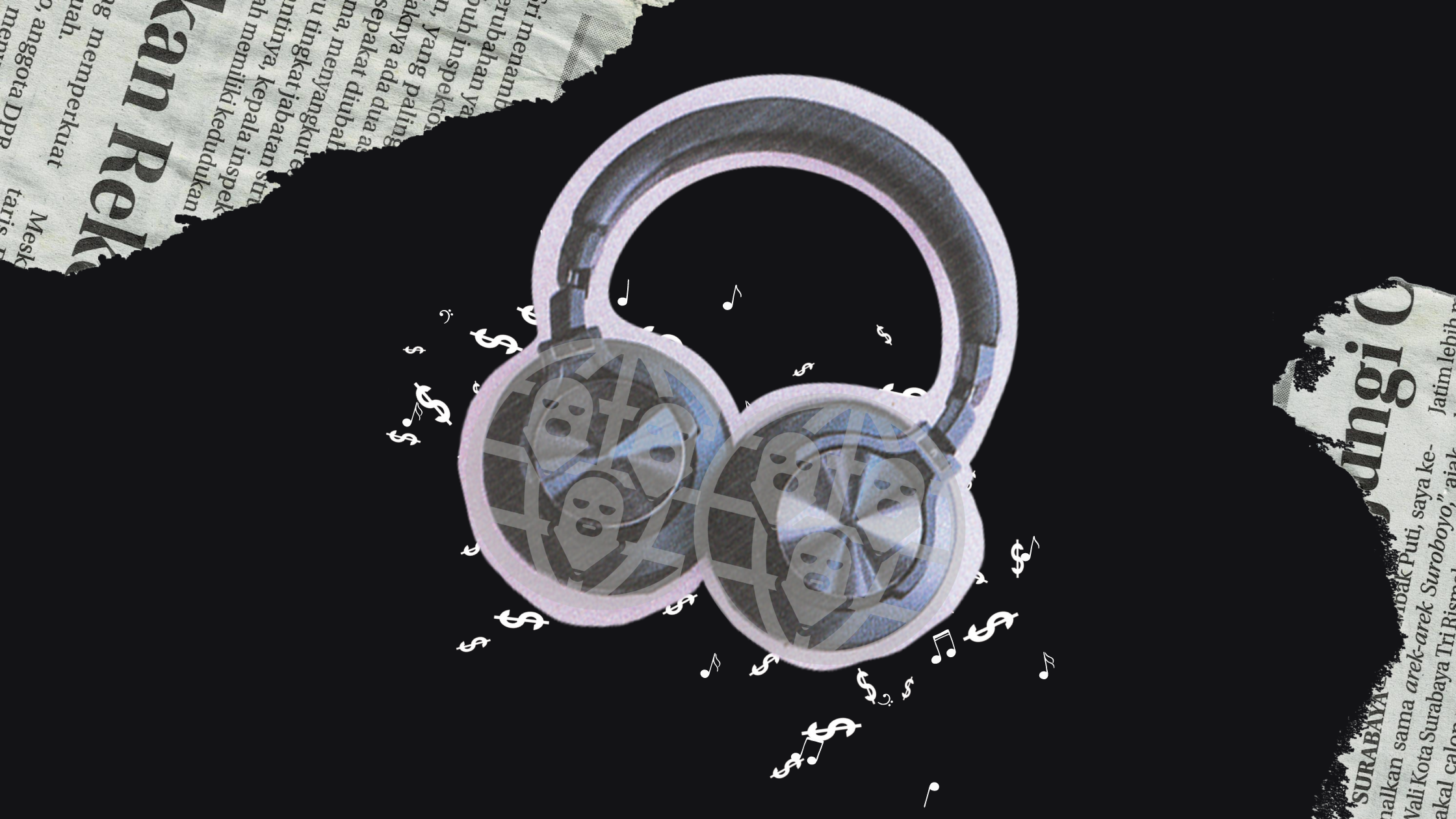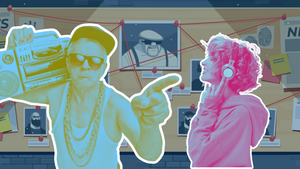Svenska Dagbladet, one of Sweden’s leading tabloid newspapers, yesterday published what it says is a detailed exposé of gangs in Sweden using Spotify as a means of laundering money obtained through criminal enterprises.
While the fraud, and the nature of it, will likely come as no surprise to many in the music industry, it nonetheless highlights ongoing issues in the streaming economy.
Streaming fraud has sometimes been presented by some industry commentators as an operation run by a lone wolf with incredible hacking skills.
The lone wolf uploads a load of low quality “fake” tracks to the streaming services, and then somehow - without anyone noticing - creates 10,000 Spotify premium accounts to drive tens of millions of streams to those tracks - again, without anyone noticing.
That then allows the scammer to pull a huge sum of money out of the royalty pool that is shared with the music industry.
There are some significant issues with that version of events though. Not least because, with streaming, usage is accounted at the end of the month in which it occurred, rightsholders (or their distributors) then submit their invoices, and the payment comes through a month after the invoice is raised. Which leaves plenty of time for an obvious fraud to be spotted and payments zero rated by DSPs, or withheld by distributors.
It would make more sense for bad actors like the "lone wolf" to do something that required far less upfront investment and far more certain return - such as running a “fake streams as a service” platform, telling artists and labels that they can boost their streaming numbers for a fee. There are plenty of those services in operation. A quick Google search brings up dozens of them.
For an enterprising fraudster, that approach is a win-win: you get the money whether or not the streams are delivered and even if your supposedly “guaranteed paying” Spotify streams don’t actually pay out to whoever buys the service. Because how are your clients going to get a refund from an obviously fraudulent site where you pay by PayPal or cryptocurrency?
There are other potential benefits to that approach too. The Dagbladet article outlines a fraud that sees criminals setting up such sites via a seemingly legitimate business, through which they then launder money gained from other illegal operations.
One way, the article proposes, for enterprising criminal gangs to achieve that is to find some willing participants within the music community who want to enter into a partnership.
For example, maybe a rapper who has an existing credible career but doesn’t mind - and actively relishes the idea of - being associated with dangerous criminal elements. In fact - the article proposes - this is part of the participating artist’s brand strategy.
Not only do they need to make music that talks convincingly about their criminal endeavours, but they also need to walk the walk. And - says the article - not all rappers can convince the people who matter that they are real criminals rather than someone who once watched a Vice documentary about street gangs.
So, for the right kind of artist, being associated with actual criminals is a potentially shrewd marketing play. And there’s an additional benefit in the unspoken “don’t mess with me, you know who my backers are” protection that comes with the association.
So, the rapper and the gangsters strike a deal, they begin inflating streams, money starts pumping out of Spotify like sewage from a British water company, an accountant makes it all look ship shape, and everyone goes home with a Rolex.
Now, this doesn’t just happen overnight. But within six months the streams are blowing up, people are starting to pay attention, and the flywheel kicks in. The fake streams begin to convert to real streams, as people check out the new star who came out of nowhere.
The Spotify algorithm grinds into action and suddenly the rapper is opening for that guy who got huge out of nowhere two years ago and is now selling out stadium tours.
Back at base, the rapper and his criminal friends divvy up the additional streaming revenues or - even better - the gang sets up a company, calls it a music marketing agency, and simply invoices the artist for promotional services, possibly with a nice contract that says “if artist’s tracks perform over threshold X additional revenues of Y to be invoiced and share of master recordings to be assigned to Criminal Enterprises AB”.
The fact that the gang is probably losing a significant percentage of the money doesn’t even matter because the ultimate aim here is to launder the cash gained from other criminal activity, because there’s no point in having millions if you can only spend 100 krona at a time.
Now is probably a good point to stop for a moment or two and ask some questions to make sure that everyone’s been following along.
Is this happening? Definitely. Are people aware it’s happening? Absolutely. Is there anything that can be done about it? Almost certainly not.
Unlike the idea of a bogeyman hacker somehow miraculously pulling down a million dollars a month from Spotify with 10,000 premium Spotify accounts, a couple of mobile phones, a PhD in algorithm avoidance and some AI-generated trap tracks - while everyone turns a blind eye - if you run the fraud as outlined above it’s much harder to spot.
How can services distinguish the fake streams from the real ones - if you’re doing it carefully, can anyone tell? But more to the point, if the artist has a decent volume of clearly legitimate streams and an actual fanbase and actual music, who is going to pull the plug, and on what grounds?
It’s widely known across the industry that operations like this exist - and associations between musicians and gangsters are hardly a modern occurrence. Also, despite the example given by Dagbladet, rappers are far from the only musicians who have criminal connections.
Once up and running, the scheme also provides other opportunities. That might involve the artist setting up their own label, signing promising young talent and boosting their careers through collabs, co-signs and guesting at shows.
With that in place, will that artist - and their friends, now serious music investors - be able to sell the catalogue they built for an eye-watering multiple on revenue in five years’ time?



